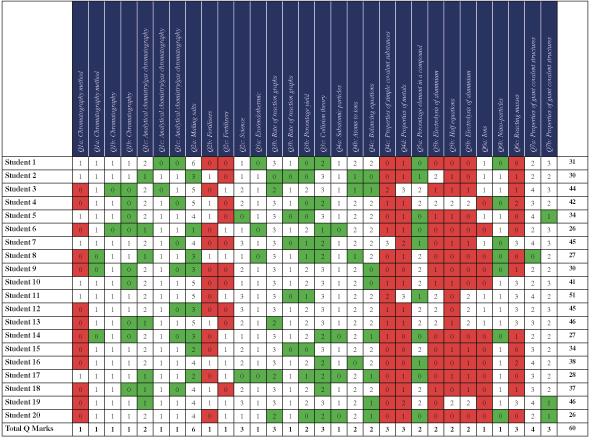I work at West Somerset College as the raising standards leader for science. It is a key strategic role within the extended leadership team and my main responsibility is to raise attainment and drive progress in science.
Last year’s (2014/15) Additional GCSE results did not meet or exceed our targets and this year’s first data assessment point shows that our current cohort is under target, particularly in double science.
In the past, we invited all underachievers to intervention and/or revision lessons. But we discovered these lessons had a whole-course focus that hampered our ability to target by class or individual pupil. We were unable to address those topics that classes or individuals found particularly hard to perform well in.
My Impact Initiative for the Teaching Leaders Fellows programme is to work on a proactive intervention model that offers targeted academic support to struggling pupils, with a particular focus on double-award science.
The main idea is to use testing to identify the topics that pupils are struggling with, either as individuals or as classes, and to put in place targeted interventions that will boost their performance.
I will retest to check that the intervention has been successful. It is not rocket science, just an application of science that fits into the classic “graduated approach” pattern of “assess, plan, do, review” (detailed below for this context) and by doing so, we can be confident that our actions are appropriate and based on sound evidence.
In identifying a pupil or class as needing support, the subject teacher should establish a clear analysis of their needs. What are the needs that aren’t being met? What do we want to change? What is creating the difficulty or need?
Assess the needs and types of intervention needed. Use tools to enable teachers to dig a little deeper to accurately assess pupil needs, including the use of past GCSE exam papers to develop “personalised learning checklists” for pupils and classes.
Then we plan the intervention. Now that the assessment has taken place, make the pupil or class and the teacher aware of the need that the assessment has established – i.e. what needs to be in place for the change to happen?
Then we “do” – facilitate changes and put an intervention in place based on individual needs or class needs. We deliver the goods!
Finally, we review the process. Has the goal been achieved? Is further intervention needed? Evaluating and reviewing to assess the impact of a defined project has two clear purposes – to measure individual pupil or class progress so that you can plan the next steps, and to establish whether an intervention is effective – is it having a positive impact on pupil or class outcomes?
Aiming for success requires a graduated approach to identifying, supporting and meeting the needs of a student or class. It is a system of informed and precise actions that requires a high level of reflective practice, and its success is entirely dependent on placing the pupil or class at its centre.
Diagnosis, therapy, testing
The approach of “diagnosis, therapy, testing” is something we are using for intervention and revision for science GCSE in year 11. We have three objectives:
- Targeted skill-based/knowledge-based interventions – key to supporting pupils/classes and staff in making progress in their learning and their teaching respectively.
- Targeted skill-based/knowledge-based lessons – teacher-planned lessons that provide the opportunity for more systematic, explicit and focused practice on a relatively small number of critical elements at a time.
- Targeted skill-based/knowledge-based lessons that they are fast-paced, interactive and targeted appropriately on critical skills for the class or individual pupils.
As part of this, the science department is working on the personalised learning checklists. The chart above is an example of one class’s results when pupils sat a mock exam. The spreadsheet was created to show all the questions from the exam and the marks assigned to them. Data can be collected from mock exams and through pupil responses on Survey Monkey.
So, using our diagnosis, therapy, testing approach, diagnosis first enables the science department to target interventions. It is completed by using data results, which are then colour-coded (see table below):
- White indicates that the score is above the mode for the question – no intervention required.
- Green means that the score is below the mode (the mark that appears most often) – individual student intervention.
- Red means that the score is less than 55 per cent of the mean average of the total marks for the question – whole group intervention.

This approach means that therapy is provided according to identified needs rather than a series of general revision sessions. Class teachers receive a colour-coded spreadsheet and in-class intervention concentrates on the red-coded topics (where the whole group has been identified as weak). Targets are set for individual pupils based on the green-coded topics.
Testing will then assess if the group and individual interventions have been successful. The next step will be to provide parents/pupils with their own individual personalised learning checklist for revision at home after January exams.
- Mary Cranna is raising standards leader for science at The West Somerset Community College. She is also a 2015 Fellow on the Teaching Leaders programme.
Teaching Leaders
Teaching Leaders is an education charity whose mission is to address educational disadvantage by developing middle leaders working in schools in the most challenging contexts. Applications for the 2016 cohort are now open. Visit www.teachingleaders.org.uk
